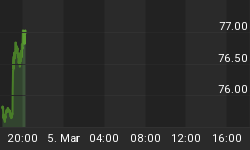Finally something that we can all get behind: Don't pay your bills. It's not my idea, although it has appeal. It's the Fed's and it's the cornerstone of the new Homeownership Preservation Policy. To qualify for aid, the homeowner must be at least 60 days past due on his or her mortgage payments. (This program is for mortgages acquired from Bear Stearns and AIG rescues. Another program begun in December 2008 required that the homeowner be 90 days late.) At the same time, the mortgagee must be able to make a reduced monthly payment, therefore, must have some income, presumably a job. The having a job part might be tough; the missing two payments part, easy.
And more good news for mortgage delinquents; several mortgage lenders have suspended foreclosures, at least through January 2009. Among them are: Fannie Mae and Freddie Mac -- together a good half of the market; Bank of America/Countrywide; Citi; and several foreign banks. If your mortgage is not held by one of these lenders, you still may be in luck. Several cities and states have suspended enforcing foreclosures; to name a few: Chicago, Philadelphia, Baltimore and Illinois and Florida. Initially, delayed-foreclosure preference was given to mortgagees who lived in their houses. It now has been extended to having an occupant in the house. An unintended consequence: what's this going to do to the rental market and the commercial mortgagee's ability to make payments? They will be subjected to the full force of the free market I guess.
Those who do not have mortgages must be asking: What about me, what can I not pay? Here's a suggestion -- credit cards. And there're a slew of them not to pay: bank, store, gas, travel. You did your patriotic duty by running up this debt in the first place. Now join your neighbours and default.
The approximate $2.6 trillion in consumer-credit outstanding as of November 2008 is at serious risk. Charge-offs are expected to rise from the current 5.62% to as high as 13%, according to Nouriel Roubini. The all-time high was 7.85% in 2002. Consumer-credit defaults are tied to unemployment. Some banks have increased their assumptions on 2009 unemployment to 8.7%, which is as much as they say they can handle; beyond this level they would be in trouble. Well, they're in trouble. According to the BLS, the rate of unemployment as measured in U-6 is already 13.5%, well into the banks' danger zone. And this number is far below the almost 18% computed by Shadow Stats (the people who came up with the definition of recession that is universally accepted), which also puts us in depression territory.
The televised Congressional Hearings/Jerry Springer Show on the new stimulus bill carried on all day. They should give up on everything except social programs at this point. Little of what they've done has worked and the trigger for the next major leg down will be out of their control by definition and could even come from outside the US.
P.S. Just found out the stimulus bill passed. They're gonna send me a check and broadband comin' out to my summer place. I take back all the bad stuff I just said.















